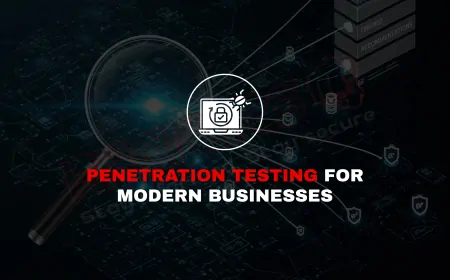What Is the Career Scope After Completing RHCE or RHCSA?
Picture this: You've just spent months diving into the world of Linux, mastering commands, configuring systems, and passing tough exams. Now, with your RHCSA or RHCE certification in hand, you're wondering—what's next? In the fast-paced IT industry of 2025, these Red Hat certifications aren't just badges; they're keys to unlocking exciting career doors. Whether you're a fresh graduate or switching careers, understanding the career scope after completing RHCSA (Red Hat Certified System Administrator) or RHCE (Red Hat Certified Engineer) can help you chart your path. These certs prove your skills in managing Linux environments, which power everything from servers to clouds. In this blog, we'll explore job opportunities, salaries, industries, and more, all in straightforward language so even beginners can get a clear picture. Let's dive in and see how these certifications can transform your professional life.

Table of Contents
- What is RHCSA?
- What is RHCE?
- Career Scope After RHCSA
- Career Scope After RHCE
- Salary Expectations
- Industries and Job Market Trends
- Skills Gained and Their Impact on Careers
- Career Progression and Further Certifications
- Why Choose Webasha for the Course
- Conclusion
- FAQs
What is RHCSA?
RHCSA stands for Red Hat Certified System Administrator. It's an entry-level certification from Red Hat, a big name in open-source software. If you're new to this, open-source means the code is free for anyone to use and modify, and Linux is a popular open-source operating system. RHCSA focuses on the basics of running Red Hat Enterprise Linux (RHEL), which is used in many businesses for its stability and security.
To get certified, you pass the EX200 exam, which is hands-on. That means you do real tasks on a computer, like setting up users, managing files, and basic networking. No trick questions—just prove you can handle the job. It's great for beginners because it builds a strong foundation. Once certified, you're ready for roles where you maintain Linux systems daily. For more on the RHCSA syllabus and exam details, check out this detailed guide on RHCSA certification from Webasha.
Why does this matter for careers? In 2025, with more companies moving to cloud and automation, knowing Linux basics opens doors to IT support and admin jobs. It's like learning to drive before racing—essential and practical.
What is RHCE?
Moving up the ladder, RHCE is Red Hat Certified Engineer. This is more advanced and requires you to have RHCSA first (or equivalent skills). The exam is EX294, focusing on automation with Ansible, a tool that lets you manage multiple systems easily without repeating tasks manually.
RHCE covers scripting, advanced networking, and securing systems. Think of it as learning to automate your house—lights turn on automatically, doors lock themselves. In IT, this means efficient, scalable work. The exam is also performance-based, testing real-world engineering skills.
For career growth, RHCE positions you as an expert. It's ideal if you want to handle complex environments. Interested in how to prepare? Read this guide on passing the RHCE exam on Webasha's blog.
Career Scope After RHCSA
After earning your RHCSA, the job market looks promising. This certification validates your ability to manage Linux systems, making you attractive to employers needing reliable admins.
- Linux System Administrator: Handle daily operations like updates and user access. Entry-level roles often start here.
- Systems Support Engineer: Help troubleshoot issues in IT setups, especially in tech support teams.
- Junior DevOps Engineer: Work on deployment pipelines in teams using Linux for development and operations.
- Cloud Support Specialist: With clouds like AWS running on Linux, support roles in cloud services are common.
- Technical Support Analyst: Provide helpdesk support for Linux-based software or hardware.
In 2025, with digital transformation booming, RHCSA holders can enter the workforce quickly. Many start with internships or junior positions and climb up. For success stories, see this RHCSA success story on Webasha.
The scope isn't limited to tech giants; small businesses and startups need Linux admins too. Plus, remote work options have expanded, allowing global opportunities.
Career Scope After RHCE
RHCE takes your career to the next level, focusing on engineering and automation. This cert shows you can design and maintain large-scale systems, appealing to senior roles.
- Senior Linux Engineer: Lead teams in configuring and optimizing enterprise systems.
- DevOps Engineer: Automate workflows using Ansible, bridging development and operations.
- Cloud Architect: Design secure cloud infrastructures on platforms like OpenShift.
- Automation Specialist: Implement tools to streamline IT processes in big organizations.
- Security Operations Engineer: Use RHCE skills for secure configurations and threat response.
With RHCE, you might land roles in consulting or specialized firms. In 2025, as AI and automation grow, these skills are in high demand. Check out this RHCE success story for inspiration.
The certification also boosts credibility, leading to faster promotions. Many RHCE holders move into management after a few years.
Salary Expectations
One of the big draws of these certifications is the pay. Salaries vary by location, experience, and industry, but they're competitive.
In the US, RHCSA holders average around $88,000 to $104,000 annually, while RHCE can fetch $118,000 or more. In India, entry-level RHCSA roles start at ₹4-8 LPA (lakhs per annum), and RHCE can go up to ₹12-20 LPA.
Here's a table summarizing average salaries in 2025 (based on global trends):
| Certification | US Average (USD) | India Average (INR LPA) | Europe Average (EUR) |
|---|---|---|---|
| RHCSA | $88,000 - $104,000 | ₹4-12 | €50,000 - €70,000 |
| RHCE | $101,000 - $118,000 | ₹8-20 | €60,000 - €90,000 |
These figures can rise with experience or additional certs. Factors like city (e.g., San Francisco vs. Bangalore) play a role too.
Industries and Job Market Trends
RHCSA and RHCE open doors across industries. Tech is obvious, but others value Linux expertise too.
- IT Services: Companies like IBM or Accenture need admins for client projects.
- Cloud Computing: AWS, Google Cloud—Linux is core here.
- Finance: Banks use secure Linux for transactions.
- Healthcare: Managing data systems compliantly.
- Telecom: Network management in 5G eras.
In 2025, job market trends show growth in hybrid roles combining Linux with AI or cybersecurity. Remote jobs are plentiful, and demand exceeds supply in many regions.
Skills Gained and Their Impact on Careers
These certs teach practical skills that directly boost employability.
- System Configuration: Impacts efficiency in admin roles.
- Security Basics: Helps in compliance-heavy jobs.
- Automation (RHCE): Speeds up tasks, valued in DevOps.
- Troubleshooting: Key for support positions.
- Networking: Essential for cloud and enterprise setups.
These skills make you versatile, leading to quicker job placements and promotions. Beginners gain confidence, while pros specialize.
Career Progression and Further Certifications
Start with RHCSA, move to RHCE, then aim higher like Red Hat Certified Architect. Progression might look like: Junior Admin → Senior Engineer → IT Manager.
Combine with AWS or CompTIA for broader scope. Continuous learning keeps you relevant in 2025's tech landscape.
Why Choose Webasha for the Course
When preparing for RHCSA or RHCE, the right training makes all the difference. Webasha Technologies stands out as a top choice in India for IT certifications. With over 40,000 professionals trained, they offer hands-on courses tailored to Red Hat exams.
Their instructors have real-world experience, and classes include labs mimicking exam scenarios. Flexible options like online, classroom, or bootcamps suit beginners and pros. Affordable fees, placement help, and post-training support add value. For tips on acing exams, visit their RHCSA tips blog or RHCE tips.
Choosing Webasha means investing in quality education that aligns with career goals.
Conclusion
To sum up, completing RHCSA or RHCE opens a world of opportunities in IT. From entry-level admin roles to advanced engineering positions, these certifications provide the skills and credibility needed in 2025's job market. We've covered what they entail, career paths, salaries, industries, and progression tips. With strong demand for Linux experts, now's a great time to certify. Whether starting fresh or advancing, these certs can lead to fulfilling, well-paid careers. Ready to take the leap? Explore training options and get started today.
FAQs
What jobs can I get after RHCSA?
Common roles include Linux System Administrator, Systems Support Engineer, and Junior DevOps Engineer, focusing on basic system management.
What jobs are available after RHCE?
You can aim for Senior Linux Engineer, DevOps Engineer, or Cloud Architect, emphasizing automation and advanced configurations.
Is RHCSA enough for a good career start?
Yes, it's a solid foundation for entry-level IT jobs and can lead to quick promotions with experience.
How does RHCE differ in career scope from RHCSA?
RHCE offers more advanced roles with higher responsibilities and pay, building on RHCSA's basics.
What is the average salary for RHCSA holders?
In the US, around $88,000-$104,000; in India, ₹4-12 LPA, depending on location and experience.
What salary can RHCE certified professionals expect?
US averages $101,000-$118,000; India ₹8-20 LPA, often higher with expertise.
Which industries hire RHCSA/RHCE certified people?
IT services, cloud computing, finance, healthcare, and telecom are key sectors.
Do I need experience for RHCSA jobs?
Not always; many entry roles value the certification, but internships help.
Is RHCE worth it after RHCSA?
Absolutely, for career growth in automation and engineering fields.
What skills does RHCSA teach?
Basics like user management, file permissions, and networking.
What advanced skills come with RHCE?
Automation with Ansible, scripting, and virtualization.
How long do these certifications last?
Three years, then renew via exams or credits.
Can I work remotely with these certs?
Yes, many Linux roles support remote work in 2025.
Are there global opportunities?
Definitely, Red Hat certs are recognized worldwide.
What further certs after RHCE?
Red Hat Certified Architect or cloud-specific like AWS.
Is Linux demand high in 2025?
Yes, with cloud and AI growth driving needs.
How to prepare for RHCSA?
Hands-on practice, official guides, and training courses.
Why add RHCE to my resume?
It shows expertise, boosting job prospects and salaries.
Can beginners do RHCSA?
Yes, with dedication and basic IT knowledge.
What makes Webasha a good choice?
Experienced trainers, practical labs, and career support.
What's Your Reaction?










































































